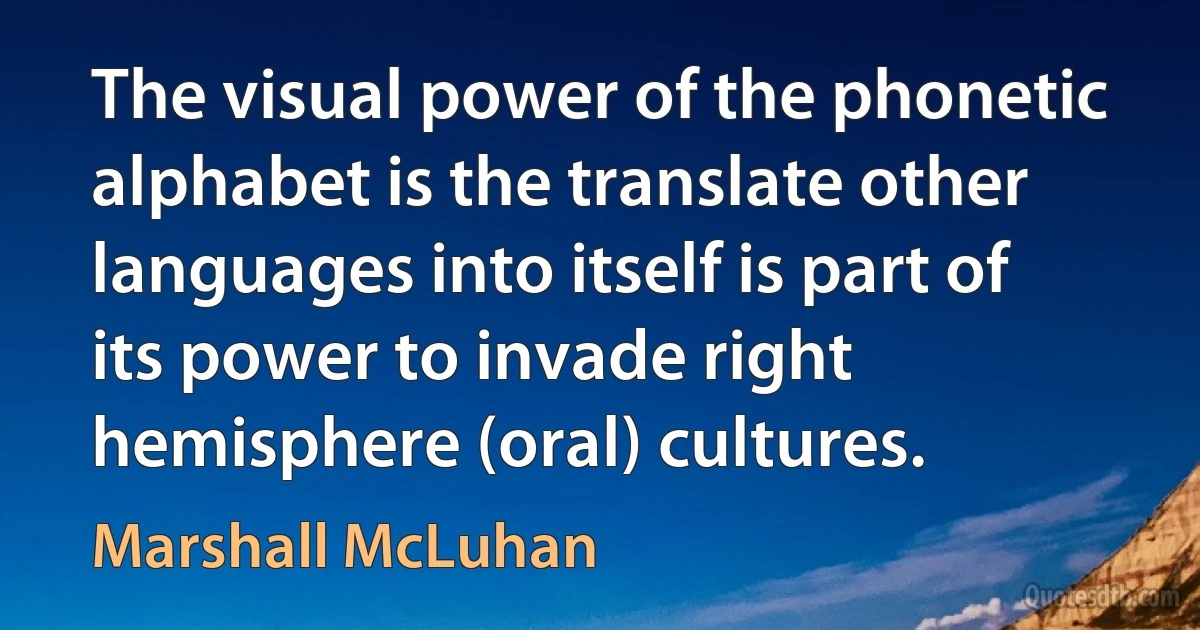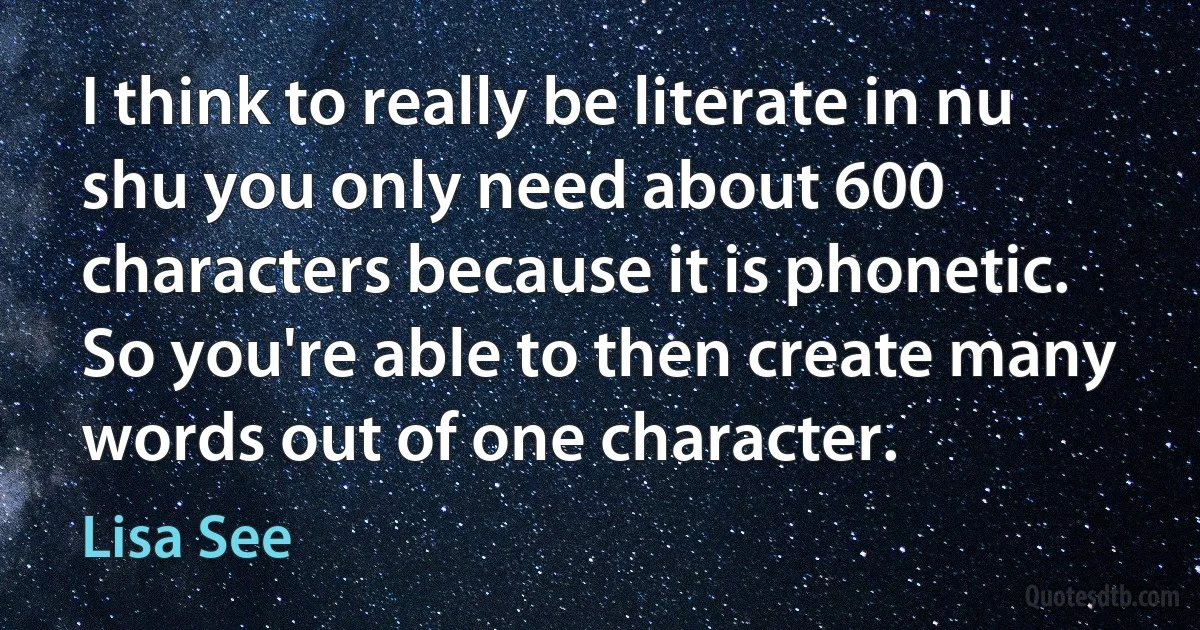Phonetic Quotes
I would like to offer an illustration. Imagine a house which is well designed from a material or practical point of view... Apart from these physio-functional demands, there are also psycho-functional demands which correspond with our optical, phonetic and tactile experiences. Until now, mankind has attempted to satisfy these 'supra-material' demands with a painting on the wall or a sculpture in a room.... the architecture of the future will have to destroy this duality. Its task will be to express completely and fulfill all our demands.

Theo van Doesburg
The basic pleasure in the phonetic elements of a language and in the style of their patterns, and then in a higher dimension, pleasure in the association of these word-forms with meanings, is of fundamental importance. This pleasure is quite distinct from the practical knowledge of a language, and not the same as an analytic understanding of its structure. It is simpler, deeper-rooted, and yet more immediate than the enjoyment of literature.

J. R. R. Tolkien
The suggestion that words are symbols for things, actions, qualities, relationships, et cetera, is naive, a gross simplification. Words are slippery customers. The full meaning of a word does not appear until it is placed in its context, and the context may serve an extremely subtle function -- as with puns, or double entendre. And even then the "meaning" will depend upon the listener, upon the speaker, upon their entire experience of language, upon their knowledge of one another, and upon the whole situation. Words do not "mean things" in a one-to-one relation like a code. Words, too, are empirical signs, not copies or models of anything; truly, onomatopoeia and gestures frequently seem to possess resemblance, but this resemblance does not bear too close examination. A cockerel may seem to say cook-a-doodle-do to an Englishman, but a German thinks it says kikeriki, and a Japanese kokke-kekko. Each can paint only with the phonetic sound of his own language.

Colin Cherry
The grammar of Panini stands supreme among the grammars of the world, alike for its precision of statement, and for its thorough analysis of the roots of the language and of the formative principles of words. By employing an algebraic terminology, it attains a sharp succinctness unrivalled in brevity, but at times enigmatical. It arranges, in logical harmony, the whole phenomena which the Sanskrit language presents, and stands forth as one of the most splendid achievements of human invention and industry. So elaborate is the structure, that doubts have arisen whether its complex rules of formation and phonetic change, its polysyllabic derivatives, its ten conjugations with their multiform aorists and long array of tenses, could ever have been the spoken language of a people.

Pāṇini
As long as the activity of linguists was limited to comparing one language with another, this general utility cannot have been apparent to most of the general public, and indeed the study was so specialised that there was no real reason to suppose it of possible interest to a wider audience. It is only since linguistics has become more aware of its object of study, i. e. perceives the whole extent of it, that it is evident that this science can make a contribution to a range of studies that will be of interest to almost anyone. It is by no means useless, for instance, to those who have to deal with texts. It is useful to the historian, among others, to be able to see the commonest forms of different phenomena, whether phonetic, morphological or other, and how language lives, carries on and changes over time.

Ferdinand de Saussure
The concept of ideographic writing is a most seductive notion. There is great appeal in the concept of written symbols conveying their message directly to our minds, thus bypassing the restrictive intermediary of speech. And it seems so plausible. Surely ideas immediately pop into our minds when we see a road sign, a death's head label on a bottle of medicine, a number on a clock. Aren't Chinese characters a sophisticated system of symbols that similarly convey meaning without regard to sound? Aren't they an ideographic system of writing? The answer to these questions is no. Chinese characters are a phonetic, not an ideographic, system of writing... Here I would go further: There never has been, and never can be, such a thing as an ideographic system of writing.

John DeFrancis
As a working Sinologist, each time I look up a word in my Webster's or Kenkyusha's I experience a sharp pang of deprivation. Having slaved over Chinese dictionaries arranged in every imaginable order(by K'ang-hsi radical, left-top radical, bottom-right radical, left-right split, total stroke count, shape of successive stroke, four-corner, three corner, two-corner, Kuei-hsieh, ts'ang-chieh, telegraphic code, rhyme tables, phonetic keys, and so on ad nauseam), I have become deeply envious of specialists in those languages, such as Japanese, Indonesian, Hindi, Persian, Russian, Turkish, Korean, Vietnamese, and so forth, which possess alphabetically arranged dictionaries.

Victor H. Mair


